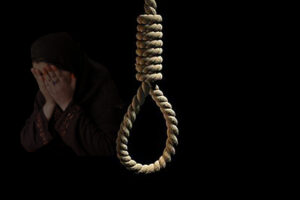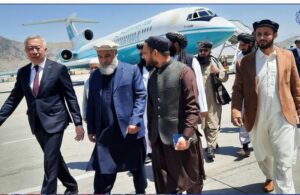MONITORING (SW) – The top UN envoy to Afghanistan has underlined the need at a UN Security Council meeting for the regional and the global community to remain engaged in helping the people of Afghanistan.
UN Secretary-General’s Special Representative for Afghanistan, Deborah Lyons told reporters following her briefing at the UNSC meeting that the Afghan people should not feel abandoned or forgotten by the international community, or any of the regional countries for that matter due to the Taliban takeover.
“We must find ways to prevent an imminent humanitarian catastrophe and the terrible loss of life that could happen over the winter. And we can prevent it. We’re supportive the regional donor regional countries and the donor community. And with the UN agencies and our incredibly implementing partners who are on the ground with us in Afghanistan, we can all make a huge life saving difference. In the past three months, we have already delivered significant amounts of aid to the health sector, and to address the rising food insecurity”, she said.
The UNAMA chief said the international community needs urgently defined more sustainable ways of addressing the pressing needs of the Afghan people beyond the upcoming winter crisis. “Without creative, flexible and constructive engagement by the international community with Afghanistan, the economic situation will worsen while poverty and extremism will grow”.
Deborah Lyons said the Taliban de facto authorities also need to play their part in responding to the concerns of their people, and the international community. “It does not have to be this way. We all recognize what is required to prevent the economic and societal collapse. We need now to work to find ways to prevent the millions of Afghans who are suffering and to counter any destabilization in the region. Thanks very much. And I look forward to your questions”.
Earlier, she told the UNSC that the Taliban continue to provide security to the United Nations presence throughout the country and allow broad humanitarian access, including for female humanitarian workers.
“And, Mr. President, be assured that we have not shied away from raising difficult issues with the Taliban, particularly on ethnic rights, women’s rights, girls’ education, inclusivity, and on reports we have heard of harassment and extra-judicial killings. In general, they have taken cognizance of these concerns and have often acknowledged that they have made mistakes and are trying to address them. However, they also make clear that for now there are limits to concessions they are willing to make on certain issues”.
On girls’ education, she said the de facto authorities have indicated they are working on a nation-wide policy so that the right to girls’ education can be exercised across the country, but they state that they need more time to clarify the policy and its implementation. While the de facto authorities had initially assured the protection of women’s rights within Islamic law, including education, there has been a general curtailment of Afghan women and girls’ fundamental rights and freedoms.
“We continue to call for a more inclusive administration, in which government institutions reflect Afghanistan’s broad diversity. We have seen limited progress on this issue, however. The composition of the caretaker cabinet, so called by the Taliban themselves, the composition of this cabinet remains entirely male, essentially Pashtun, and almost all Taliban. At both the capital and provincial levels recent appointments continue to appear designed more to rewarding fighters than promoting governance and inclusion”, she said.
She concluded that this was not the time to turn backs on the Afghan people. “If we do, our collective failure will resonate for decades—as will the pain of millions of Afghans”.
ENDS






